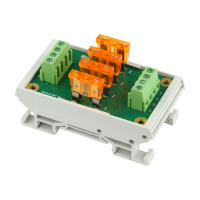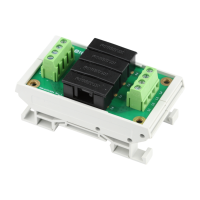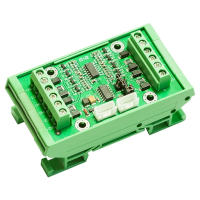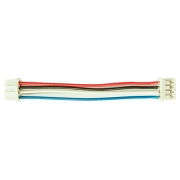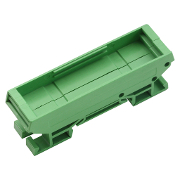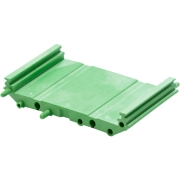*
The RoHS icon on this product indicates that the PCBs, components, solder, and chemicals are all lead-free and RoHS compliant. Additionally, this product is produced using a lead-free process. Unfortunately, we are currently unable to provide documentation confirming that this product is RoHS compliant.
Resources:
*
If your browser cannot display the PDF file properly, please save it to your computer and open it with a PDF reader.
Package Includes:
This package does not include Din-Rail PCB holders and cables.
Notes:
- This package does not include Din-Rail PCB holders and cables.
- This board uses 4-pin connectors for I2C bus.
Features:
- 8 on-board relays
- Based on the PCF8574A chip
- 100khz I2C bus frequency
- Addressable via 3 jumpers supporting up to 8 boards(64 relays), 16 boards(128 relays)
- Operating logic supply voltage: 2.5-5.5V with inverse polarity protection
- Relay power supply voltage: 9-13V with inverse polarity protection (12V recommended)
- Relay contact rating: 10A @120Vac/24Vdc or 6A @250Vac(100,000 life cycles)
- Compatible with most microcontrollers
- PCB dimensions: 87.50 x 72.00 mm
This is an I2C relay board designed as a remote 8-relay expander for the I2C bus, based on the PCF8574A chip. It is ideal for expanding relay outputs via the I2C bus and is compatible with most microcontrollers.
The board supports a 100kHz I2C bus frequency and allows addressing via three jumpers, enabling the use of up to 8 boards (controlling 64 relays). It can also be configured to connect up to 16 boards, supporting a total of 128 relays—see the board’s datasheet for more details.
The operating logic supply voltage ranges from 2.5V to 5.5V, with built-in reverse polarity protection. The relay supply voltage ranges from 9V to 13V (with reverse polarity protection), with 12V being the recommended value. The relay contacts are rated for 10A at 120VAC/24VDC or 6A at 250VAC, with a lifespan of 100,000 cycles. Additionally, the board includes relay power-on protection.
To prevent damage to the board, do not plug or unplug I2C cables while the power supply is on. Always turn off the power supply before connecting or disconnecting I2C cables.









